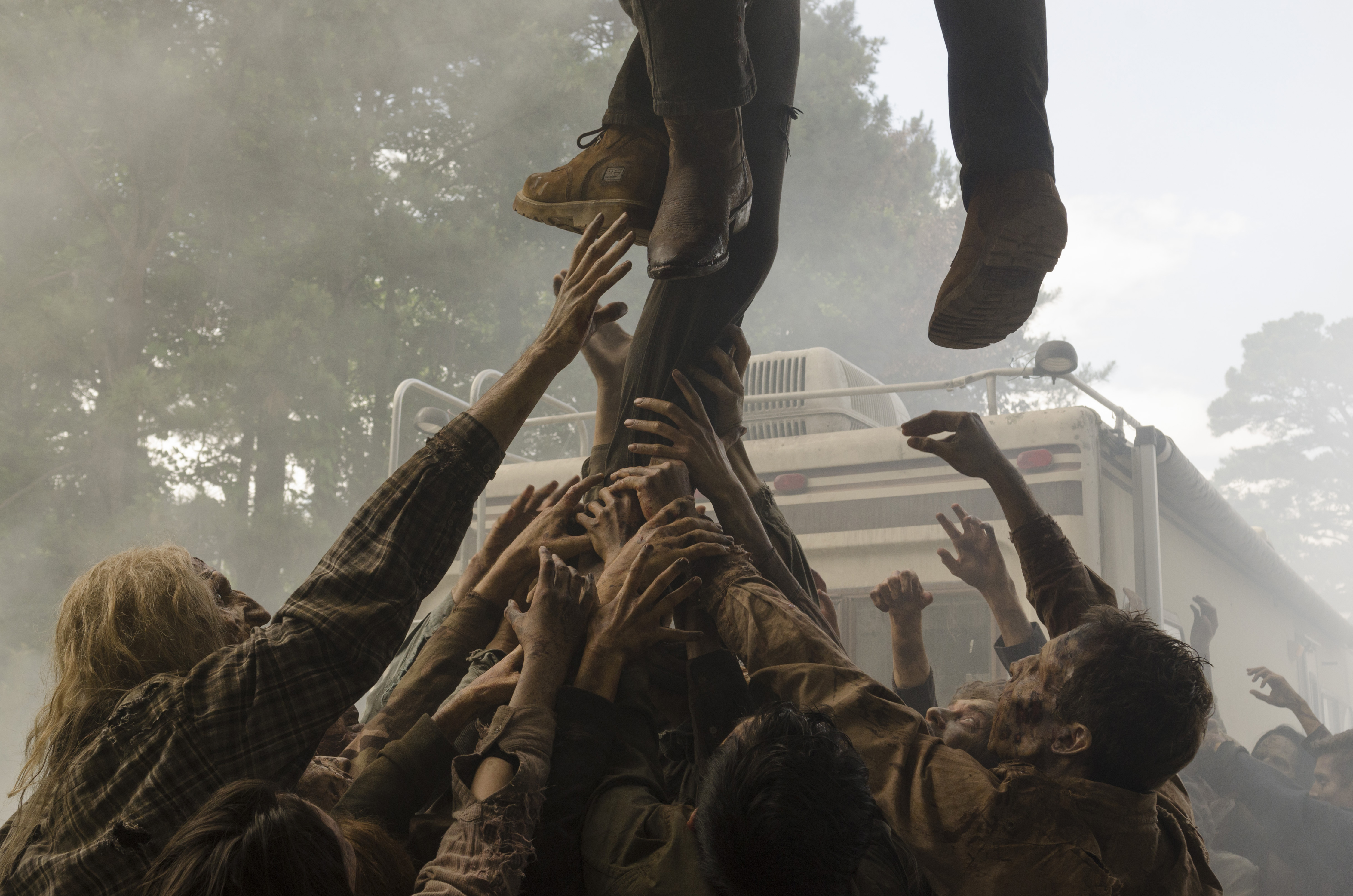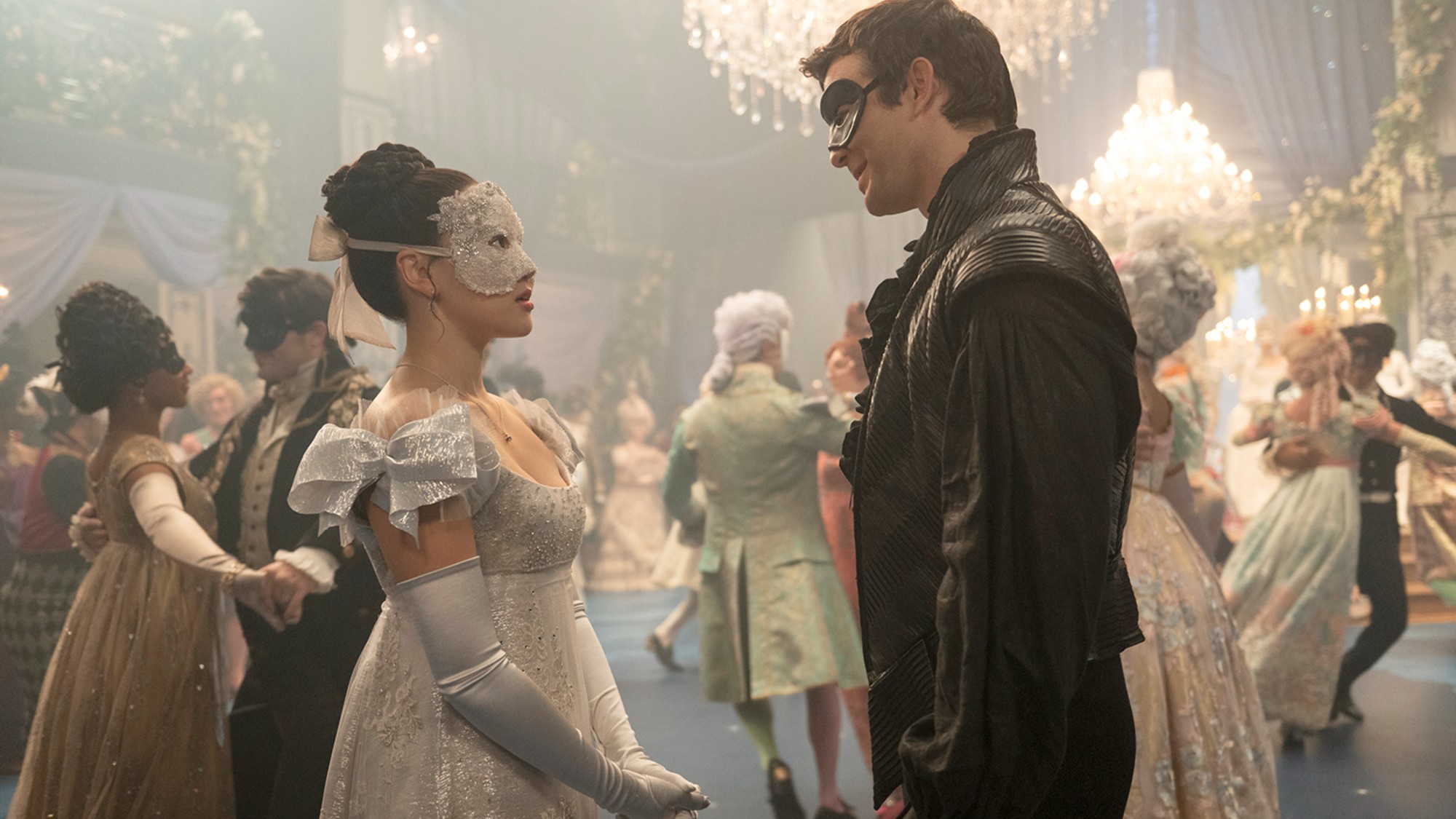How The Walking Dead abuses its fans
The Walking Dead's problem isn't how violent it is, but why it's so violent


A free daily email with the biggest news stories of the day – and the best features from TheWeek.com
You are now subscribed
Your newsletter sign-up was successful
In its season 7 premiere, AMC's prodigiously popular The Walking Dead made good on its promise to treat its fans like garbage.
After last season's notorious cliffhanger, during which mustachioed madman Negan (Jeffrey Dean Morgan, spewing hackneyed Big Bad dialogue and chewing scenery with relish) teased the show's heroes, and its fans, with a baseball bat prettified with barbed wire and the threat of — what else? — murder, the show pinned itself in a corner. How do you make a tease that severe worth the wait?
By slaughtering not one but two beloved characters, obviously.
The Week
Escape your echo chamber. Get the facts behind the news, plus analysis from multiple perspectives.

Sign up for The Week's Free Newsletters
From our morning news briefing to a weekly Good News Newsletter, get the best of The Week delivered directly to your inbox.
From our morning news briefing to a weekly Good News Newsletter, get the best of The Week delivered directly to your inbox.
You can't end a season with such chicanery, then start the next season with such deplorable laziness, and not have some sort of contempt for your fans. Indeed, the stomach-churning grotesqueries and gimcrack tricks of The Walking Dead season six finale and this season's premiere made me think of of Hannibal (RIP), a truly visionary show, bolder and more edified in its use of violence for ontological and poetic purposes. Hannibal knew how to do violent cliffhangers right.
Hannibal ended its stellar second season with four of its main characters laying in pools of blood, clinging to life, their fates ambiguous. It was a bravado and fierce, even intimate, depiction of love and betrayal, of love defying definitions and revenge begetting forgiveness, of how blood, thicker than the rain tumbling down in sheets in those final shots, flows through bodies both human and celestial. Horror has long begged the question, "Who will survive, and what will be left of them?" Hannibal followed dream logic; actions and consequences were dictated by ids and egos and not the laws of reality. Who will survive, and how will they live with themselves?
Hannibal's third and final season, a 13-episode medley of avant-garde, phantasmagoric brilliance that ostracized casual viewers while delving ever deeper into esoterica and macabre exaltation, took three episodes to tell us who lived and who died in that season 2 finale. But it was a patient, pensive unfurling of tragedy. The season premiere never even insinuated what happened, but instead relocated to a new country, where it deliberately explored the ennui of a cannibal on the lam, a man who left his best friend filleted on the floor. Hannibal even spent an entire episode following a character who turned out to be a hallucination conjured by guilt and twilight sedation, a decision that could have been cheap if it wasn't handled with such tender care.
Compare that artistry to The Walking Dead.
A free daily email with the biggest news stories of the day – and the best features from TheWeek.com
If you were perusing Twitter during The Walking Dead premiere, you saw, in real time, the flood of irritation as fans waited, patience dwindling, for some answers, for some justification. The difference between these shows, both of which have habits of reviving dead characters, is the intention. Hannibal didn't torment fans, but trusted them to hang on and not give up. It was a loving relationship between viewer and show. The Walking Dead abuses fans.
Aficionados of Robert Kirk's sordid, artless source material knew the demise of Glenn was imminent, though that doesn't make it any easier to stomach the skull-crushing, the eye-popping, the amorphous slop that was once brain and face. By killing off one character as a lazy red herring and then, before viewers could even process his death, going for the headline-making kill, treating one person as lugubrious foreplay and the other as the money shot, the writers basically admitted that they don't care about their characters. They view them as fleshy, incarnadine fodder. Too repulsive to be entertainment, too vacuous to be art, this show is a messy nothing masquerading as provocation. The episode has prompted critics to ask if the show "is too violent," but it's not a question of how violent this episode is, but why it's so violent. The hardihood of violence has long since festered into sophomoric nihilism, and The Walking Dead, as if bored by its own pedestrian plodding, has apparently decided the solution to creative stagnation is an exponential increase in gore.
But you can only batter so many brains and lop off so many limbs before the constant carnage becomes jejune. Let's hope this show gets better — and fast.
Greg Cwik is a writer and editor. His work appears at Vulture, Playboy, Entertainment Weekly, The Believer, The AV Club, and other good places.
-
 Heated Rivalry, Bridgerton and why sex still sells on TV
Heated Rivalry, Bridgerton and why sex still sells on TVTalking Point Gen Z – often stereotyped as prudish and puritanical – are attracted to authenticity
-
 Sean Bean brings ‘charisma’ and warmth to Get Birding
Sean Bean brings ‘charisma’ and warmth to Get BirdingThe Week Recommends Surprise new host of RSPB’s birdwatching podcast is a hit
-
 Film reviews: ‘Send Help’ and ‘Private Life’
Film reviews: ‘Send Help’ and ‘Private Life’Feature An office doormat is stranded alone with her awful boss and a frazzled therapist turns amateur murder investigator
-
 Walter Isaacson's 'Elon Musk' can 'scarcely contain its subject'
Walter Isaacson's 'Elon Musk' can 'scarcely contain its subject'The latest biography on the elusive tech mogul is causing a stir among critics
-
 Welcome to the new TheWeek.com!
Welcome to the new TheWeek.com!The Explainer Please allow us to reintroduce ourselves
-
 The Oscars finale was a heartless disaster
The Oscars finale was a heartless disasterThe Explainer A calculated attempt at emotional manipulation goes very wrong
-
 Most awkward awards show ever?
Most awkward awards show ever?The Explainer The best, worst, and most shocking moments from a chaotic Golden Globes
-
 The possible silver lining to the Warner Bros. deal
The possible silver lining to the Warner Bros. dealThe Explainer Could what's terrible for theaters be good for creators?
-
 Jeffrey Wright is the new 'narrator voice'
Jeffrey Wright is the new 'narrator voice'The Explainer Move over, Sam Elliott and Morgan Freeman
-
 This week's literary events are the biggest award shows of 2020
This week's literary events are the biggest award shows of 2020feature So long, Oscar. Hello, Booker.
-
 What She Dies Tomorrow can teach us about our unshakable obsession with mortality
What She Dies Tomorrow can teach us about our unshakable obsession with mortalityThe Explainer This film isn't about the pandemic. But it can help viewers confront their fears about death.
